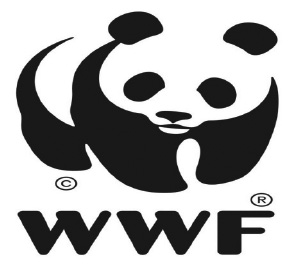
Are readers aware of the wildlife population being decreasing nationally? The World Wide Fund for Nature (WWF) recently published the Living Planet Report 2022. In this publication, they announced the wildlife population has declined 69% over the last 50 years. Let’s check out why this wildlife population decline is important, and how it is connected with us.
A CBT reporter met WWF-Korea Marketing & Communication Team Leader, Hong Ji-yea, to get to know more about the WWF.
1. Please introduce the World Wide Fund for Nature (WWF)?
You may have seen the panda logo of the WWF established in 1961. It is currently the world’s largest conservation of nature organization, actively present in more than 100 countries around the world. The goal of the WWF is to prevent the destruction of the natural environment of Earth and to enable the world to coexist peacefully with humans and nature. In addition, we are trying to enhance the awareness of citizens to reduce environmental pollution and wasting resources.
According to the Living Planet Report 2022 published by the WWF and Zoological Society of London (ZSL), the decrease of biodiversity is serious at present.
Readers may have heard the word, ‘biodiversity’ which basically refers to how diverse creatures on Earth are. There are, however, many more concepts related to diversity. This includes what genetic diversity is like and how many ecosystems there are like rainforests, tundra etc. That is, all of these things are combined organically, breathing, functioning naturally.
According to the report, the size of wild animal populations decreased by an average of 69% from 1970 to 2018 based on the LPI (Living Planet Index). LPI is an indicator that tracks changes in the abundance of mammals, fish, reptiles, birds around the world to check the health of nature over a period of nearly 50 years, and acts like an early warning system.
Readers may not be directly aware of the dire situation of biodiversity reduction. The CBT reporter asked her to explain exactly what the current situation is.
2. Currently, due to biodiversity reduction, there is a very serious situation, but it is hard to fully understand the complexity of this situation. Therefore, what is the current situation?
Biodiversity is organically intertwined and breathes and functions naturally. Therefore, the decrease in biodiversity goes beyond disappearing animals and plants, to disrupting the balance of the ecosystem, causing problems in food, resources, fresh water, forests, and everything else. This could soon lead to a food crisis for humans.
3. There have been many Living Planet Reports so far. Is there anything special in the Living Planet Report released this year?
The report this year shows the decrease in biodiversity and climate change are not separate crises, but a double emergency. Through this report, I would like to disseminate the fact biodiversity is continuously decreased. Most serious scientists agree we are close to a tipping point. It’s going to be a situation where we can’t come back. Therefore, we are broadcasting the message we have to change urgently, desperately. Readers must remember if nature is destroyed, it will eventually lead to the question of human survival.
In order to restore biodiversity, not only the efforts of institutions or organizations but individuals are required. The concept of all these efforts is ‘Nature-positive.’ It is to prevent natural loss and restore it, and to strengthen the resilience of Earth and society. This means international efforts promised and implemented by the government and civil society for global goals in the natural field. There is still time for Earth, but everyone must practice being Nature-positive. As Hong Ji-yea said, “Presently, it is not a situation where the condition naturally deteriorates and then improves later, but an irreversible catastrophe with far reaching implications.”
By Kim Ye-rin
ering0325@chungbuk.ac.kr


 All
All Society & Global
Society & Global






 Kim Ye-rin
Kim Ye-rin











